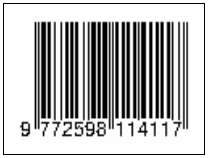Discussion on possibility of community-based waste management views from citizen environmental consciousness: A case of rural area in Karang Joang Village, Balikpapan Indonesia)
Abstract
Keywords
Full Text:
PDFReferences
The Environment Ministry of the Republic ofIndonesia. (2014). The Waste Management Policy.
The environment ministry of the Republic of Indonesia. (2012). The Bank of Garbage Indonesia.
Toshizo Maeda. (2009). Reducing Waste Through the Promotion of Composting and Active Involvement of Various Stakeholder
Replicating Surabaya’s Solid Waste Management Model, Police Brief.
Ministry of Environment of the Republic of Indonesia. 2014. Waste Management Policy in the Application of Alternative Renewable Energy RourceTechnologies. Deputy assistant waste management.
Confintea. (1997). Adult Environmental Education Awareness and Environmental Action”. Hamburg.
JICA. (2014). Strategy Paper on Solid Waste Management.
Ayu Fitriana. (2013). Perilaku Ibu Rumah Tangga dalam Pengelolaan Sampah di Desa Bluru Kidul Rw 11 kecamatan Sidoarjo.
Surahma Asti Mulyasari. (2014). Kebijakan Pemerintah dalam Pengelolaan Sampah domestik, Government policy in Domestic Waste management, Kesmas.
http://www.indonesia.go.id/id/index.php?option=com_content&task=view&id=4488&Itemi d=701
http://www.dpr.go.id/artikel/terkini/artikel.php?aid=2824
Yuzarian Faulizar Pohan. (2012). PengelolaanSampahPerumahanKawasanPedesaanBerdasarkanKarakteristikTimbulan Sampah di Kabupaten Gresik, Jurnal Teknik Pomits, 1, 2301-9271.
José Canga-Rodríguez. (2006). Modern Wastewater Treatment Solutions in a State-of-the-Art Pharmaceutical Production Environment. Germany
Refbacks
- There are currently no refbacks.








